Why State and Local Tax Due Diligence is Essential for Software-as-a-Service Investments
- Matthew Friedman, Senior Director
- Edwin Benny, Senior Vice President
Outlining common pitfalls and due diligence best practices
Software-as-a-Service (SaaS) companies sit at the intersection of rapid growth and regulatory ambiguity, particularly when it comes to state and local tax (SALT) compliance. Their virtual-first business models often obscure traditional indicators of tax presence, like physical offices or inventory, yet they can still create multistate nexus through remote employees, digital sales or third-party fulfillment relationships. This makes SALT diligence not just advisable, but critical to informed deal execution.
Middle market private equity firms investing in SaaS targets often underestimate the scope and scale of SALT exposure. Given the recurring revenue model and lean operational infrastructure typical in these businesses, unrecorded sales tax liabilities, economic nexus issues or improper employee classification can materially erode transaction value if left unaddressed. SALT diligence should be seen as a strategic risk management tool – one that protects downside, informs modeling and enables post-close readiness.
COMMON SALT PITFALLS IN SaaS M&A
 |
Revenue Mischaracterization – A recurring issue in SaaS diligence is revenue mischaracterization for sales tax purposes. Founders often believe that software delivered over the cloud is inherently exempt from sales tax. In reality, state-by-state rules inconsistently treat SaaS as either taxable or exempt, creating a complex state-specific compliance maze. On many occasions, the Portage Point team has uncovered significant tax exposures that led to material changes in transaction value due to missed sales tax collection in high-risk jurisdictions such as New York, Texas and Washington, simply due to taxpayer misunderstanding. |
 |
Economic Nexus – Another frequent pitfall is economic nexus. With the South Dakota v. Wayfair decision still reverberating through state tax policy, many SaaS companies have unknowingly triggered filing obligations based solely on customer locations. Target companies are frequently exposed in multiple states, especially when billing models are usage-based or when enterprise clients are located across the country. |
 |
Employee Misclassification – Improper employee classification is also a frequent misstep. Many SaaS companies, especially those scaling quickly, rely on contractors for development, support and marketing functions without fully assessing whether those individuals meet the criteria for independent contractor status under state law. Misclassifying employees as contractors can create a host of SALT-related problems, including underreported payroll tax, unfiled employment tax returns and exposure to penalties and interest. |
Without early and informed intervention, these tax issues can quietly accrue into deal-altering surprises.
SALT STREATGIES FOR BUYERS TO MITIGATE THESE RISKS
For SaaS transactions, proactive SALT diligence enables two parallel strategies (i) risk containment and (ii) future-state readiness.
| Buyers should assess whether the target has any legacy exposures requiring indemnification or voluntary disclosure agreements (VDAs). Additionally, buyers should consider whether the current billing model supports sales tax compliance and whether their future go-to-market strategy introduces risk in new jurisdictions. | |
| To mitigate risks related to employee misclassification, buyers should prioritize a comprehensive review of the target workforce structure, including employment agreements, payment practices and historical filings. This review should assess whether independent contractors are being used appropriately under both federal and state standards, particularly in jurisdictions like California, which apply stringent tests such as the ABC test. Where misclassification is identified, buyers may need to assess the magnitude of the potential payroll tax exposure and consider indemnification or purchase price adjustments. | |
| Finally, if a platform company is in play, post-close consolidation will likely amplify these issues. Buyers should align legal entity footprints with apportionment strategies, ensure that consolidated returns are permitted or required and be thoughtful about where sales offices, key personnel or support services are located from a nexus perspective. |
CLICK HERE TO DOWNLOAD THE PDF
WHY CHOOSE PORTAGE POINT FOR SaaS SALT DILIGENCE
Portage Point integrates SALT insights into the broader transaction strategy from the outset. Beyond identifying risk, the team models consequences, size exposures and recommends deal-aligned remedies. Whether it is sizing deal impact, supporting VDA execution or addressing post-close integration, the Portage Point team delivers pragmatic, transaction-tested solutions informed by deep SaaS experience.
In addition, our integrated platform enables the SALT professionals to collaborate closely with financial diligence teams to deliver a cohesive, transaction-ready work product that aligns with investor objectives.
For SaaS businesses in particular, the experience at Portage Point spans subscription and usage-based billing models, international legal structures, remote teams and nuanced revenue recognition methods. Our diligence is tailored to match the needs of the deal and target, be it a lean, founder-led startup or a venture-backed scale-up.
SALT diligence is not just about compliance. It is a lever for sharper valuations, stronger protections and confident ownership from day one.





























